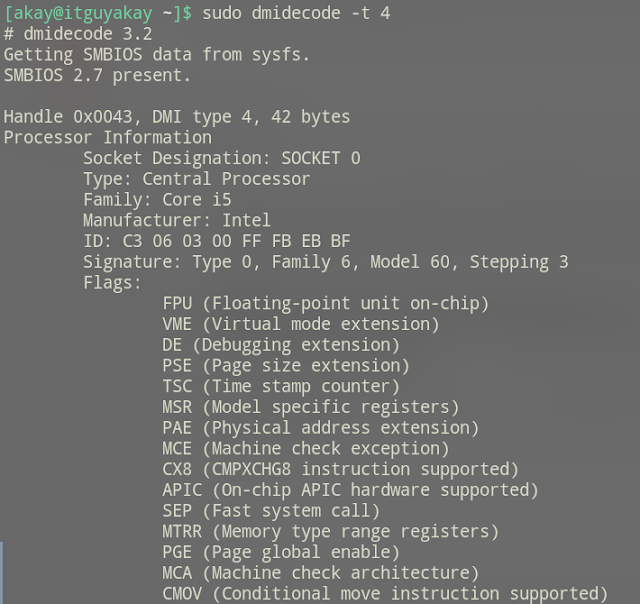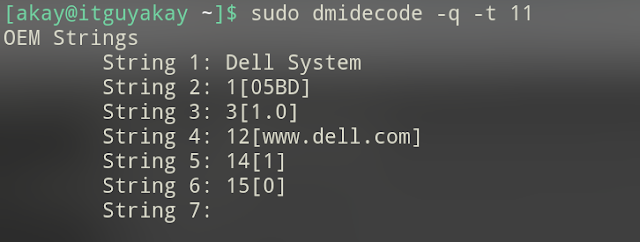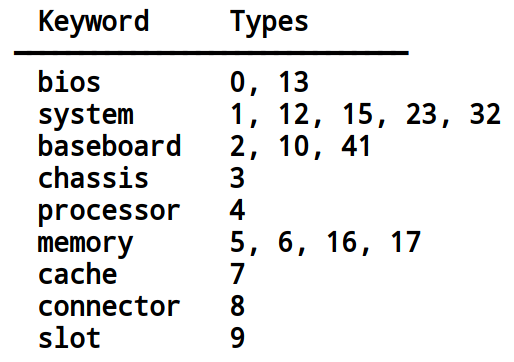DMI stands for Desktop Management Interface. Dmidecode is a tool in Linux systems that tool read DMI (some say SMBIOS) table to fetch data and displays useful system information like hardware details, serial numbers and BIOS version, Processor etc. in human readable format. You may require root privileged to execute "dmidecode" command.
In this post we will learn that how can we fetch system information with the help of DMI inbuilt utiltiy.
Default Output : If you run the dmidecode command without any argument, it will show you the complete system hardware details. It includes BIOS , CPU, Cache, Communication Ports, Chassis, System Base Board etc information. When you execute the command each record shows four common information that is :
Handle : handle are identifier which can be used to reference records each other
Type : hardware types.
Size : total size of each record
Decodes value : records decoded information.
DMI Types : The default command will provides the complete information but what if you want only a specific type of system hardware details. How can you fetch that details with dmidecode utility. Actually you can fetch any particular type of information also with the help of options available like -t , --type with ID numbers. You can find the all IDs in man page of dmidecode .
For example dmidecode -t 4 will gives you the complete hardware information about system processors.
List of ID number for fetching information of specific type of system hardware
Options : There are many useful options available that you can use to fetch a very unique information about system hardware without fetching the bulk information about your system hardware.
Below are the options with the example outputs :
-q or --quite : It removes the header information from the output ( see below examples) in order to make it less verbose.
-s or --string : This option is used to fetch a piece of information by providing a NAME string. For example, If you want to fetch the system serial number that you can do with only providing the string. see below example :
-t or --type : This option we already discussed. It is used to fetch information about a specific type of system hardware resource. (see DMI Type heading )
-H or --handle : This option fetch the information only whose HANDLE identifier code will match.
Keywords : Instead of --type ID numbers , you can use the keywords in order to fetch the system hardware information. Below is the list of available keywords with their referenced ID numbers.
Please Share Post With Your Friends 😀





















0 Comments